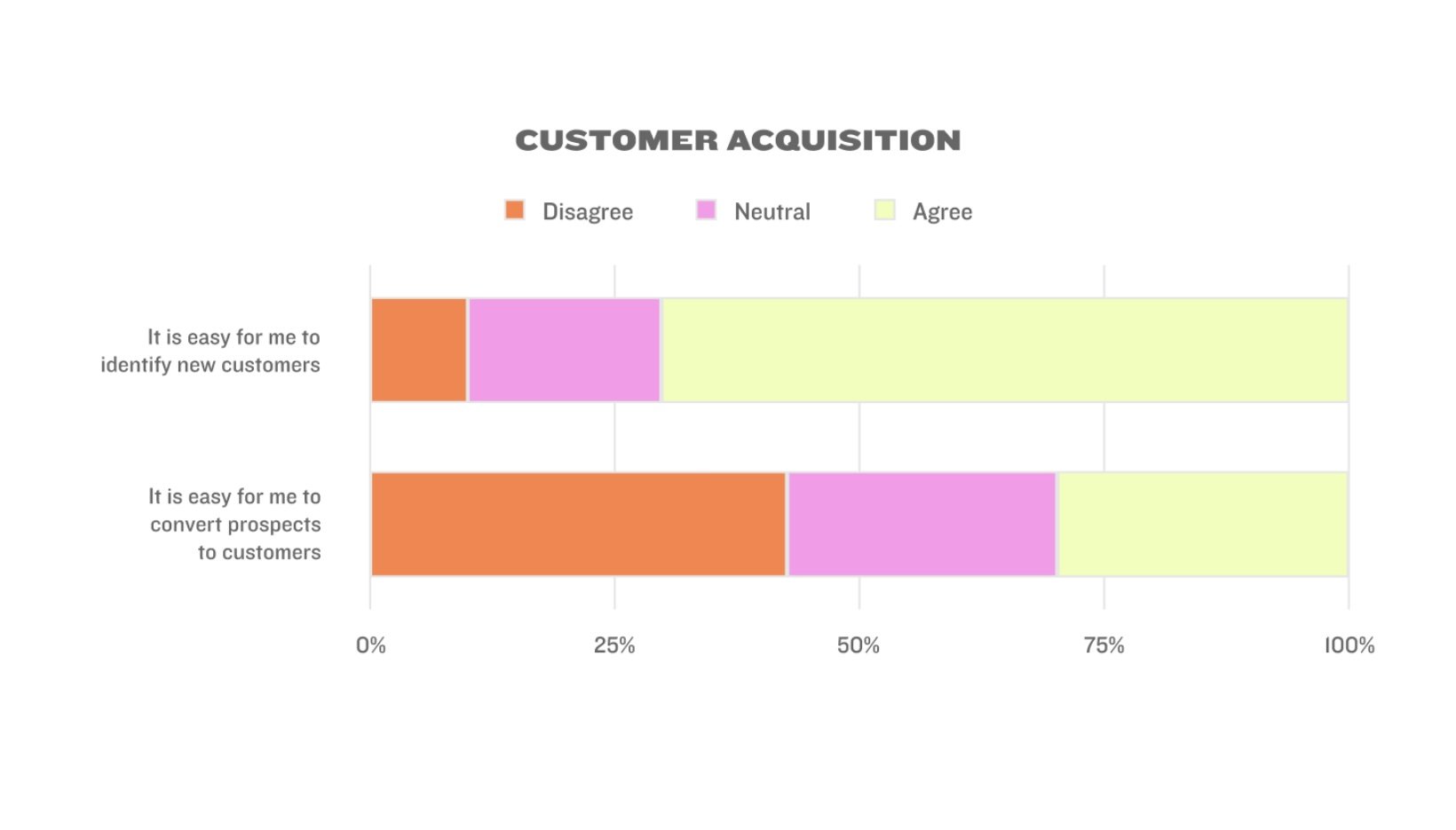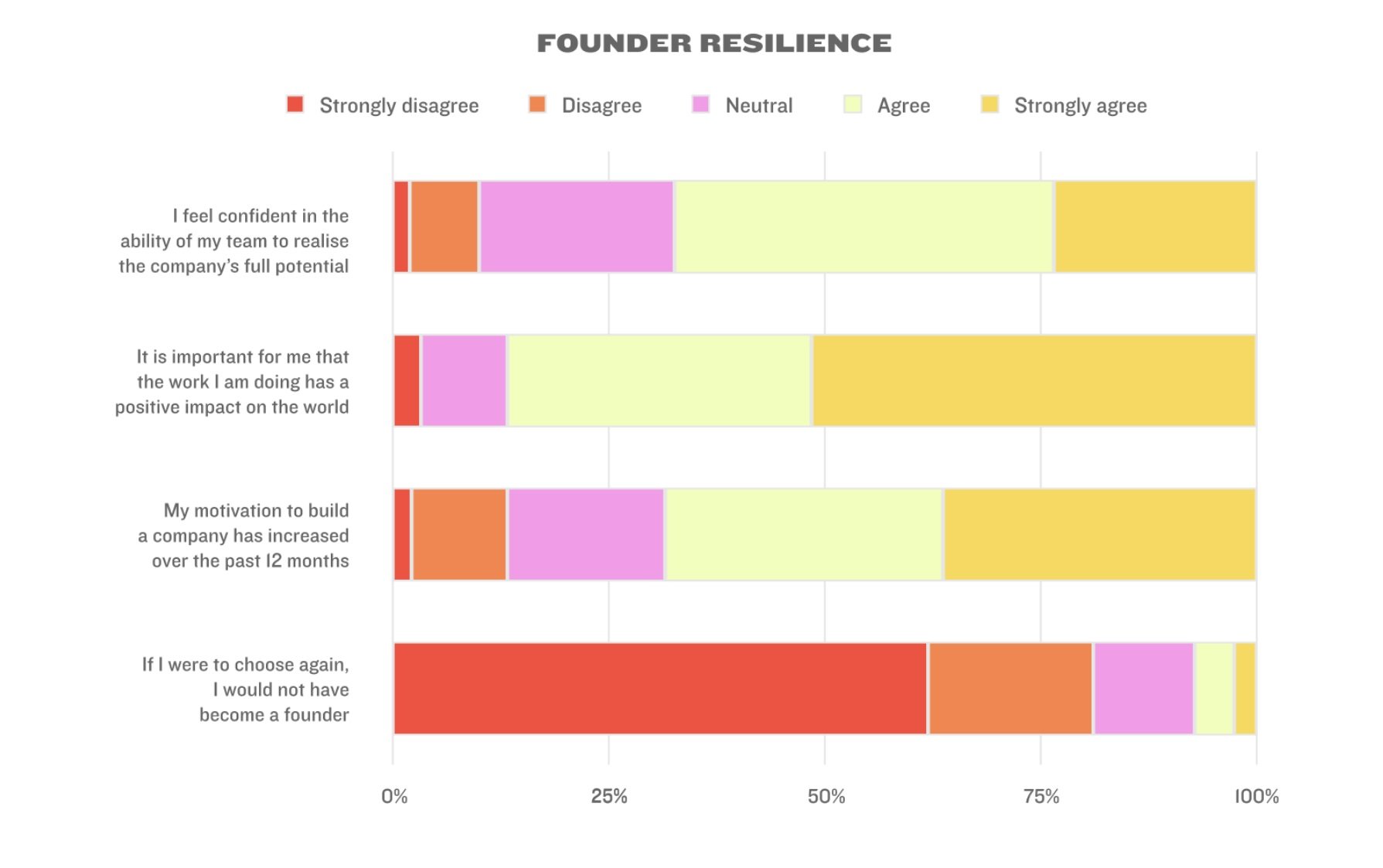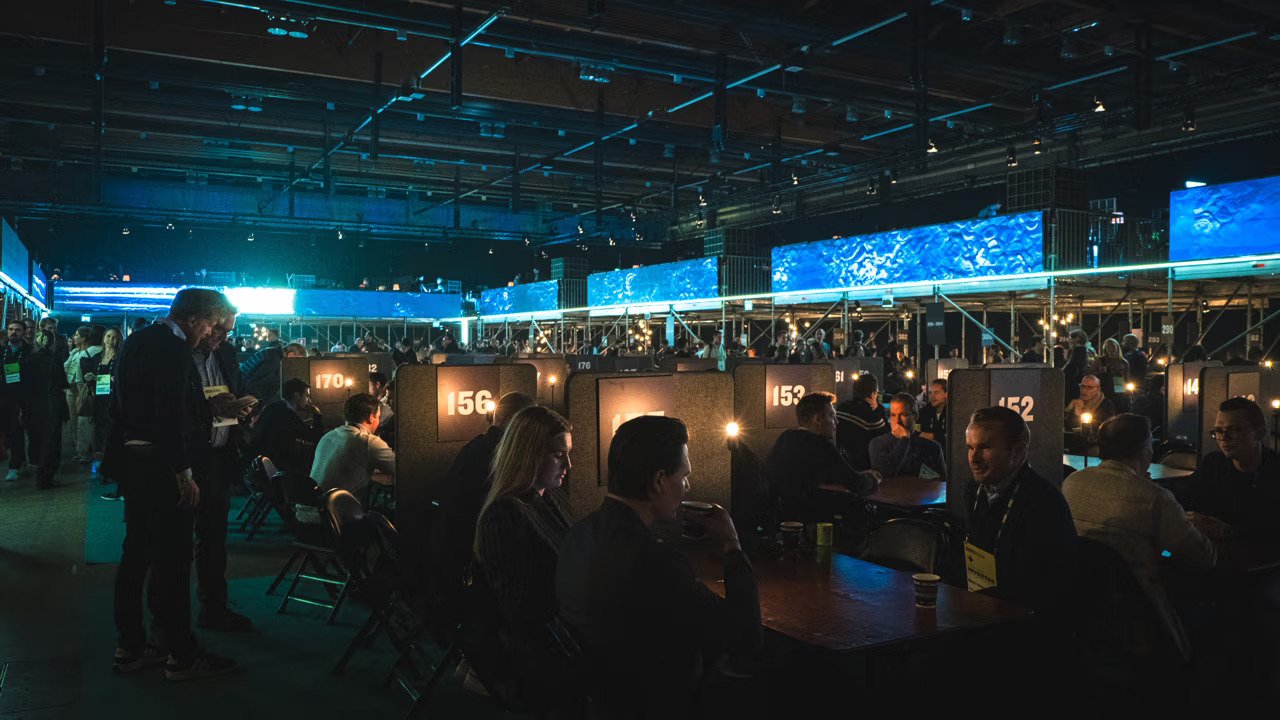Today, Slush released the second edition of the Startup Struggle Survey 2025, its second edition of grassroots-level research into the most pressing challenges of building a startup in Europe.
With over 600 responses from early-stage founders across the continent, this report captures the pulse of Europe's startup community—the most pressing challenges, the sources of optimism, and the realities of building a company in today’s landscape.
This report is based on 607 responses from early-stage European startup founders collected in Q1 2025. The average company was founded in 2021, making them approximately 4 years old at the time of the survey. On average, founding teams consist of 2.5 founders, with 60.17 per cent reporting at least one repeat founder. 68.37 per cent of respondents had no funding.
The research is little different to the traditional ones commissioned by VCs – with the researchers most interested in the seemingly mundane, everyday friction points that hinder progress: the things that don’t make headlines, but hold companies back.
While some struggles are timeless— capital, hiring, growth—others shift subtly each year.
And what became immediately clear is this: the biggest struggles in 2025 are existential— funding and growth.
Some of the key findings:
Fundraising remains the top concern for founders
Fundraising is still the top concern for 58.1 per cent of founders, though slightly down from last year’s 63 per cent.
Only 18 per cent of founders state that it would be easy for them to raise funding right now if they wanted to, while 57 per cent actively disagree—marking a 7.6 percentage point increase in those who find it harder to raise capital compared to 2024.
Further, founders consistently point to a core tension: in a market where generating growth is difficult, it’s even harder to raise capital — because growth is exactly what investors expect. That creates a paradox. Founders face mounting pressure to demonstrate a clear path to profitability and capital efficiency, rather than just chasing rapid expansion.
European founders also face regional headwinds. European investors are perceived as more risk-averse than their US counterparts, especially in deeptech, where long cycles and uncertain returns scare off more conservative capital. And in the AI space, oversaturation has made it harder than ever to stand out.
Revenue growth and customer acquisition are challenging
Concerns in revenue growth have grown, which jumped nearly 16 percentage points year-over-year. It signals a growing struggle: even when capital is raised, turning that capital into sustainable growth is far from straightforward.

Additionally, while 68 per cent of founders say it’s easy to identify new prospects, only 30 per cent say it’s easy to convert them. The gap between visibility and traction is where momentum dies.
Limited resources force constant trade-offs between building the product and executing effective go-to-market strategies. As one founder put it, “Nobody seems to know how to do GTM. It’s all trial and error.”
The growth landscape has shifted. Rising customer acquisition costs, intensifying competition, and rapidly evolving market expectations make revenue growth harder to achieve and sustain.
“Everything that worked 10 years ago doesn’t necessarily work today.”
Hiring and talent
Beyond the struggles of skills and salaries, founders are increasingly focused on mindset. It’s a struggle to find people with the technical know-how and the cultural alignment, drive, and accountability required in an early-stage team.
“I care about attitude—skills can be taught.”
So, the challenge is twofold: hiring fast enough to support growth, while maintaining a high bar for motivation, ownership, and cultural fit. And in some cases, founders pointed to a deeper issue: “There seems to be a lack of ambition to grow new globally competitive businesses.”
Founder Resilience
Behind every company is a founder carrying the weight of everything. And yet, motivation in 2025 remains strong.

68 per cent of founders feel confident in their team’s ability to reach its full potential. 81 per cent say they wouldn’t change their founding decision. And 87 per cent say it’s important their work has a positive impact on the world.
Further, co-founder alignment is trending positively, with fewer founders saying they’d choose different people if starting over.
Still, the emotional toll is very real. One founder described it as “like running against a wall daily.” Others spoke of the stress of wearing too many hats, constantly navigating an uncertain future, and balancing purpose with the pressure to build a profitable business. One founder described their worst fear as their business failing, continuing to say: “But then again, I will never know if I don't try.”
Is there hope for European tech?
The answer from founders is a resounding — if nuanced — yes.
There’s a quiet confidence brewing beneath the surface. Founders point to signs that Europe is maturing in all the right ways: a new wave of second-time founders reinvesting their capital and experience back into the ecosystem; a growing bench of VCs who don’t just bring money, but conviction; and an operator-to-founder flywheel that’s finally kicking in.
What gives many hope is Europe’s deeper sense of purpose. Founders speak with pride about building companies grounded in ethics, inclusion, and responsibility. There’s a belief that Europe can define a new kind of tech model: one that’s sustainable, values-driven, and globally competitive.
“We have the talent, the ethics, and the vision. Now the belief is catching up.”
Lead image: Carlos Perez



Would you like to write the first comment?
Login to post comments